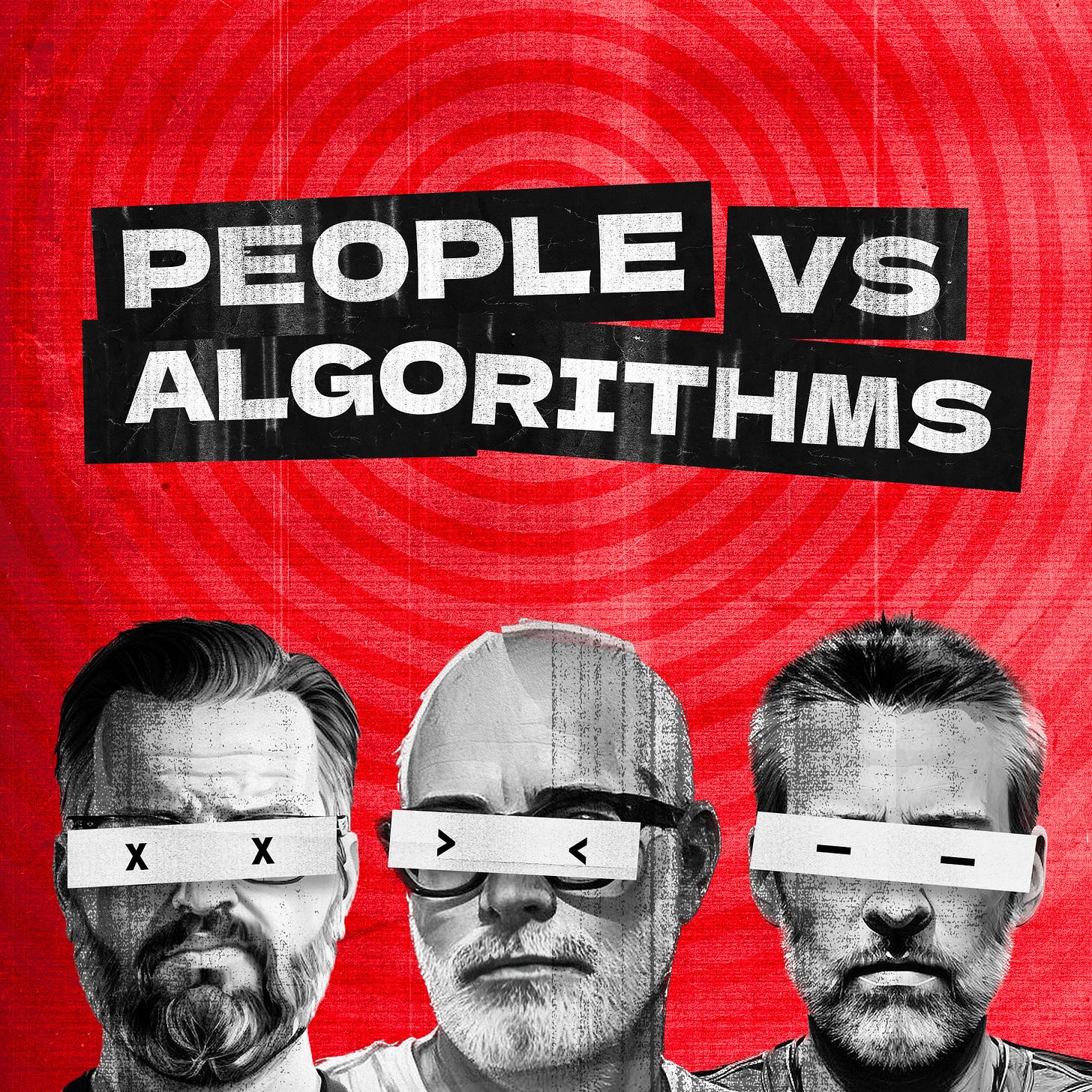This week, an early read on winners in an AI era, some thoughts on the messy breakup of journalism and Twitter, Walter Frick on brand architecture and tech’s go-direct mantra as a ZIRP phenomenon. Big thanks to this week’s supporting partners, LiveIntent and Zephr. Get in touch if you want to work together.
Drive revenue on every email open
Activate your email newsletters and first-party data to unlock and drive revenue with LiveIntent. Power impactful and relevant campaigns that deliver value to your email subscribers and advertiser partners, while securing incremental revenue for your business. Learn how you can join more than 2,000 premium publishers and 1,000 advertisers that use LiveIntent.
AI’s coming media shakeout
In case you haven’t heard for some reason, AI is coming. Actually, it’s here. Whether it's the Balenciaga Pope silliness or apocalyptic warnings that maybe humanity will end because Microsoft was pissed about losing to Google at search, AI is sorta like Trump: it’s everywhere, and everyone’s got a hot take.
This is particularly true in the media business, because when it comes to tech disruptions, media always goes first. And AI tools, particularly when it comes to the creation or media and also the distribution of media, are readymade to have a far more profound and quicker impact on the media sector than many other areas.
On this week’s episode of People vs Algorithms, we consider what the age of AI will mean to the media business, including who is positioned well. My belief is that AI will accelerate many of existing trends in the media business:
The rebalancing of power between individuals and institutions
The flight to niche over scale
A merciless focus on efficiency
Increased value of first-party and unique data assets
Gravitation to human-centered content vs the overly optimized
Check out the full episode wherever you listen to podcasts. For feedback and episode topic ideas, send me a note by hitting reply or emailing brian@therebooting.com.
Succeed with digital subscriptions
In this e-book, Zephr delves into the most important actions publishers can take to build or improve on their subscription strategies. This starter kit includes all the key terminology and steps to succeed in the digital publishing industry, subscription personalization, retention and churn management.
Breaking up with Twitter
Breakups as a rule are messy. The more dysfunctional the relationship, the messier. That’s one explanation of the spectacle of the media business’s slow motion breakup with Twitter, the chaotic partner who tends to drink way too much at parties and say incredibly embarrassing things or launch into random sales pitches to strangers.
Elon Musk’s pivot of Twitter’s business model to subscriptions could be the right move in the long term, if the execution is not exactly smooth. The issue of Twitter’s verification system, and its conflation with “elite privilege” of media, is too ludicrous to go into in depth. Journalists’ visceral reaction – it’s actually about ethics in misinformation policies – betrays a codependent relationship with the platform they simply cannot quit. I have this problem. As Casey Newton puts it in
:“Journalists — along with a bunch of people Musk arbitrarily suspended, fired, or laid off — continue to tweet just the same, propping up the service with their quips and sports tweets and food photos just as they always have. And while some of the company’s competitors show intermittent signs on life, none has taken on the feeling of a daily must-visit in the way Twitter did and still does.”
Twitter is menthol cigarettes to the twitchy information junkie, which journalists are by rule. I started using Twitter back in 2007. It was different then. Twitter was still in its “what you’re having for lunch” phase. People sent updates on their flip phones via T9. There were tweetups. And I even owned a t-shirt saying “140 is the new 420.” It was mostly a toy, as Chris Dixon has noted many innovations begin as, but it clearly had bigger potential as an information network.
I began to notice that people in the ad and publishing industries began following me, even though I was tweeting jokes or dumb observations of random things that crossed my path. (I even briefly had an impersonator who gave an interview about me as a “notorious twitterer.”) Soon, I had a lot of followers, relatively speaking. What I saw was this changed my thoughts about my employer. Someone on the sales team had come to me asking to include my Twitter account on a sales pitch. That opened my eyes. (I said no.) But more than that, there was a connectivity to the audience that was different. This was a time before anyone uttered the word “personal brand.” It was a blissful time.
Twitter will likely enter the typical decline of social platforms. Nothing lasts forever. Ask MySpace. Journalists’ obsession with Twitter is in contrast to their employers, of course. Twitter was never as big of a source of traffic and revenue as Facebook before it too consciously uncoupled from news. The Times and other publications refusal to pay for Twitter verification points to how dysfunctional this time has been. Twitter is often viewed with annoyance by publishing executives, a distraction and productivity drain. Time reporters spend bickering with on Twitter is not productive for the business. There’s also brand damage thats been done when, inevitably, journalists gets over their skis.
But as Casey notes, alternatives haven’t caught on much. Mastodon violates one of the cardinal rule of the internet: nobody wants to run their own server. Post.news is a ghost town. Substack is making its move to be something of a Twitter alternative. I’m recording an episode of The Rebooting Show this afternoon with him, and I hope to learn more about how this Notes features fits into Substack’s “subscription network” strategy. I’ll be sure to try it out, as I’ve been doing here and there with Substack’s Chat feature.
On brand architecture
Walter Frick of
responded to my recent writing on formats with a framework for how to think of the role of formats within the architecture media brands.Rebecca Henderson’s business theory starts with the idea of a product being individual components and then an "architecture" that puts those components together. And the idea is that incumbent companies are good at incorporating new ways of making an individual component better, but struggle when there's a shift to the whole architecture.
A format is a component. If you figure out how to make a really good explainer, the Times can adopt that easily if it wants to. Ditto for Vox "card stacks" or listicles or what-have-you. Make a good format and you'll easily be copied.
The bigger threat from Vox and Buzzfeed a decade ago was the idea that the whole "architecture" of news was changing: If you think back to the Times Innovation Report in 2014 it's all about how social media had changed how content creation and content distribution fit together -- ie the architecture of news. Vox didn't just write better explainers and better Facebook copy; it combined those two kinds of work in ways the Times didn't yet feel comfortable with or know how to do.
That threat fizzled because social didn't monetize, and when subscriptions became the thing, well the Times knew that architecture better than Vox or Buzzfeed.
Check out Walter’s writing at Nonrival. Also, send me yours by hitting reply or emailing brian@therebooting.com.
Post-ZIRP comes for “go-direct” strategies
We are only now beginning to find out the true extent of how many things were so-called zero-interest rate policy phenomena, the dismissive term given to oddities like overpriced exercise mirrors, those working-as-a-product-manager day-in-life videos and everything web3 and metaverse. There are smaller baubles that in a new era look less attractive.
I think it’s safe to say the go-direct mantra of Silicon Valley circa 2021 is one to add to the pile. The on-brand hairy-chest talk of replacing media gatekeepers with their own friendly propaganda PR brand journalism plays was always overblown. Media is a thankless business and far harder to execute consistently than many programmers believe. Then again, tech people have seamlessly moved into epidemiology, macroeconomics and politics.
Stripe, (valuation cut nearly by half from ZIRP peak) is spinning off Indie Hackers, the media property it acquired in 2017 as part of its gauzy mission to “increase the GDP of the internet.”
Robinhood (stock down 72% from ZIRP peak) spun out its Snacks newsletter property it acquired in 2019
Coinbase (stock down 82% from ZIRP peak) has stopped talking about being a media company. They have bigger fish to fry with regulators coming after its business. I don’t think there will be a sequel to the vanity project hagiography of its founder. It already put a bullet in its Bored Apes-themed “Degen Trilogy.” after one hare-brained installment.
Andreessen Horowitz (heading to Saudi for dough) pulled the plug on Future, which it launched in 2021 as the cornerstone of its strategy to go around the mean kid reporters.
Clubhouse (valued at $4 billion in 2021) apparently still exists.
Media will always be a shiny object, and there’s a role for companies to play in producing useful content that taps into their unique expertise. But it’s always going to be a side project for these companies – and on the chopping block when the prevailing winds change.
Thanks to LiveIntent and Zephr for sponsoring this edition. If you’re looking to reach 14,800 publishing professionals, you should consider sponsoring The Rebooting to showcase your expertise in finding paths forward for building sustainable media businesses. Check out the sales kit and get in touch: brian@therebooting.com.







I think journalists have fooled themselves when it comes to Twitter. Hey, that's where everyone in media is, it must be the place to be! But I think it has actually *hurt* writers (and tech people). Chasing trends, getting caught up in the never-ending feed, and getting a distorted picture of the real world. Most will never, ever quit Twitter, even if they're distracted and irritated and exhausted, and if they do they'll either quit for a week and then come back, or they'll move to Mastodon. And if you just move to another social media platform you're missing the point.
I quit all social media years ago and wrote about why here:
https://sassone.wordpress.com/2014/08/13/thoughts-on-social-media/
And a follow-up I wrote last year when everyone was supposedly quitting:
https://sassone.wordpress.com/2022/11/05/you-should-have-quit-twitter-years-ago/
"Twitter will likely enter the typical decline of social platforms. Nothing lasts forever."
Do you think twitter will ever file for bankruptcy?